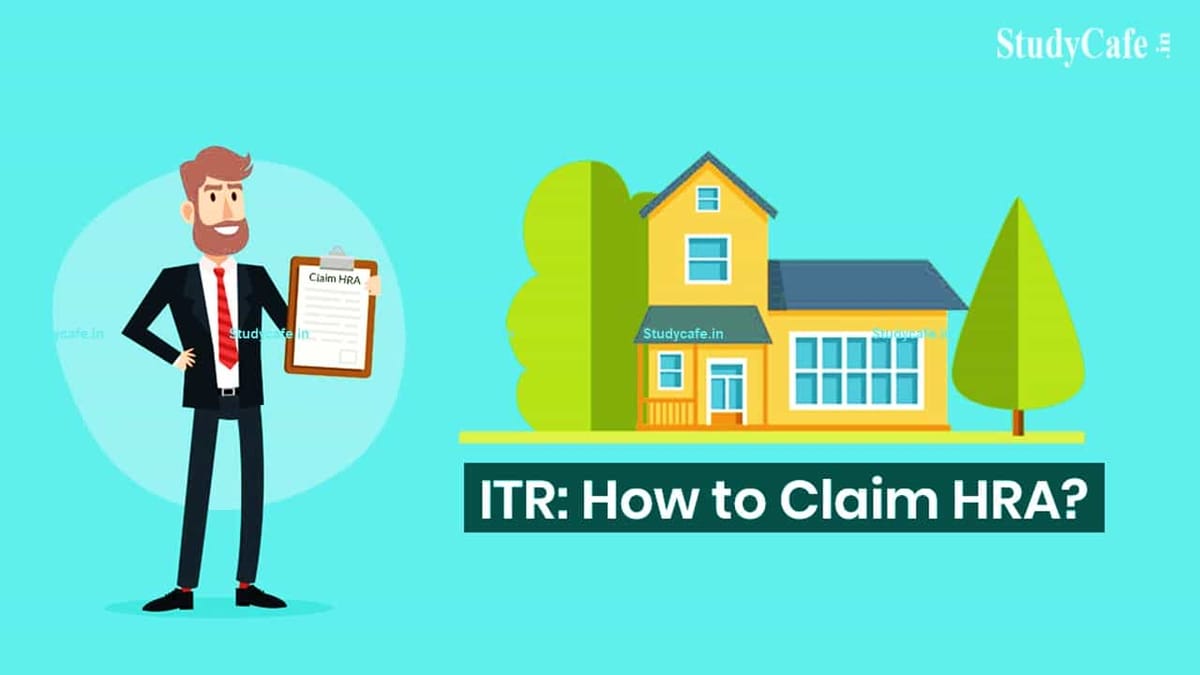Deepshikha | Nov 8, 2021 |

How to claim HRA while Filing ITR?
One of the most important allowances available to salaried individuals is HRA (House Rent Allowance). If you are a paid individual who lives in a leased home, you can use the HRA to partially or completely reduce your tax due. The allowance is intended to cover costs associated with rental housing. In this situation, your landlord could also be your parents. The HRA, on the other hand, is fully taxable if you do not live in your own home.
If you want to claim the HRA exemption, you can do so when you file your tax returns. This is only possible if your employer does not claim HRA on your behalf.
Here’s a step-by-step method to claiming HRA exemption on your tax returns.
HRA exemption is available to salaried employees who get house rent allowance as part of their wage and make a payment toward the rent of the location they reside in. HRA exemption lowers taxable income entirely or partially.
The HRA amount is shown on the employer’s tax forecast statement at the beginning of the fiscal year. The HRA is deducted from your pay by your employer. You can notice the deduction in Part B of Form 16 generated by your employer when you file your ITR (Income Tax Returns). You can file an amended return before the end of the assessment year if you do not file your HRA claim when filing your ITR.
You can get HRA exemption only if.
If your employer does not offer you HRA, you may still be eligible for a deduction under Section 80GG of the Indian Income Tax Act if you pay rent for any residential property you own. However, to qualify for this exemption, you must meet certain requirements, such as:
You cannot claim the benefit of self-occupied housing if you own residential property in a location other than the one listed above. The other accommodation would be considered rented in this situation, allowing you to claim the 80GG reduction.
Section 80C of the Income Tax Act of 1961 exempts insurance premiums from taxation. Furthermore, under Section 10 of the Internal Revenue Code, any benefit received under the savings insurance policy is tax-free (10D).
In most cases, your employer will ask you to submit your rent receipts in the last quarter of the fiscal year so that you can claim an HRA exemption on Form 16 that the employer generates. If you do not submit your rent receipts to your employer, he or she will take TDS (Tax Deducted at Source) without taking into account the HRA. You can still claim HRA exemption in your ITR in this circumstance. You’ll have to manually compute the exempt HRA amount.
If you present your rent receipts along with other supporting documentation to your employer, he or she will review the situation and reduce the tax withholding accordingly. Form 16 and your tax return will both indicate your exemption. It is simple to file for HRA through your workplace.
If your annual rent is greater than Rs. 1 lakh, you must provide details of your landlord’s PAN card to your employer to claim the HRA exemption, according to HRA tax exemption guidelines.
Furthermore, since your Form 16 and ITR-1 forms have been linked, filing for HRA tax exemption has become even easier, as the amount is instantly pre-filled in the ITR form when you submit your claim online.
You can also claim HRA exemption in your ITR if you did not or could not submit your rent receipts to your employer. The employer would not have included the HRA exemption in the taxable wage in this situation, resulting in a greater TDS deduction.
The extra TDS will be repaid to you if you claim an HRA deduction on your ITR. You must, however, determine the correct HRA exemption amount and claim it from your income.
In case of any Doubt regarding Membership you can mail us at contact@studycafe.in
Join Studycafe's WhatsApp Group or Telegram Channel for Latest Updates on Government Job, Sarkari Naukri, Private Jobs, Income Tax, GST, Companies Act, Judgements and CA, CS, ICWA, and MUCH MORE!"